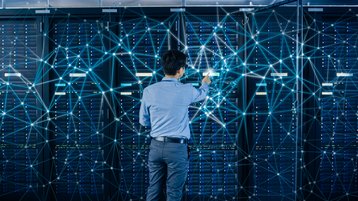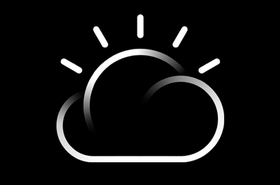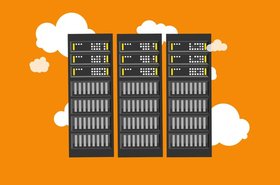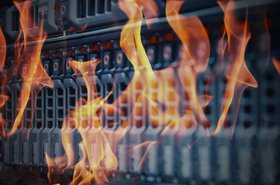The Internet is going to be alright.
The past few months have been difficult, the next few likely more so, but the challenge of global lockdowns has been eased by our ability to communicate, work from home, and unwind with games and video streaming services. So it’s good news that the net was built to handle unprecedented demand.
It’s also quite remarkable. “Imagine another utility scaling like this,” Cloudflare CTO John Graham-Cumming told DCD. “Imagine if everyone was like, ‘I need 40 percent more water. All of this. Right now.’ It couldn’t happen.”
This feature was written in April for the Scaling with Confidence Colocation supplement. Read it for free today.
Networks were built with redundancy in mind, designed to handle the peaks in traffic caused by events such as sports game streams (although, ironically sports is one of the things which is now less likely to be streamed). As a whole, networks should be able to weather the current surge.
Traffic began to rise, as one would expect, as lockdowns began to be enacted around the world. “There was a huge increase of traffic, somewhere between something like 20 and 70 percent, depending on the geography,” Graham-Cumming said. “Now they've come up to kind of a new normal level,” And it’s becoming clear that the new normal is likely to extend, as lockdowns will ease gradually and people are likely to continue to stay at home.
Usage has changed. Previously there was one big peak as people came home from work and streamed videos, or accessed things that were blocked at work. “Now you're seeing a double peak, you're seeing a peak around eight to nine o'clock in the morning. And then again in the evening. So a big, big change has definitely happened.”
Equally, for obvious reasons, where people access the Internet from has changed: Commercial districts have gone dark, while residential areas are permanently digitally connected.
This shift to diffused last mile connectivity has caused some issues, albeit isolated ones, that expose areas of network underfunding or low fiber deployment. Like most crises, it is something that disproportionately impacts the poor. "Mostly, though, the network is very, very flexible," Graham-Cumming said.
In an effort to improve its flexibility, in the weeks after the lockdown, network operators rushed to upgrade their systems and do essential maintenance. This had the unfortunate side effect of adding further planned and unplanned outages, network monitoring company ThousandEyes found.
“What we've noticed is that overall we've seen a gradual increase in the number of outages globally, from February 17,” product marketing manager Archana Kesavan said. But from April 5 that figure began to drop, as the upgrades were finished and the networks were able to handle increased load.
With traffic plateauing and vital upgrades out the way, it is clear that Covid-19 will not overwhelm network operators. However, there is still a risk of isolated outages. While data center and networking staff are counted as essential, teams are likely to be stretched thin, kept in smaller, isolated teams, and could be understandably tired and distracted due to the current situation.
“There will be effects that are caused by people being sick, or people having to care for others or people having less ability to concentrate,” Graham-Cumming said. “The environment has changed, there are additional stresses. So you might see things you didn't expect. I think that's a real thing to worry about.”
As we head into yet another record hot summer, it’s also likely we will experience outages that could have happened even without the current pandemic. Outages happen.
Except this time, as the entire global economy is propped up by the thin fiber cords connecting us all, large outages would be felt ever more keenly.
"We just need it more than we ever did," Graham-Cumming said. "The Internet has become a vital part of our lives.” Data connectivity is now becoming as essential as electricity and (in the developed world at least) is expected to always work.
What happens when it doesn’t? “A blackout is a big deal," he said.




